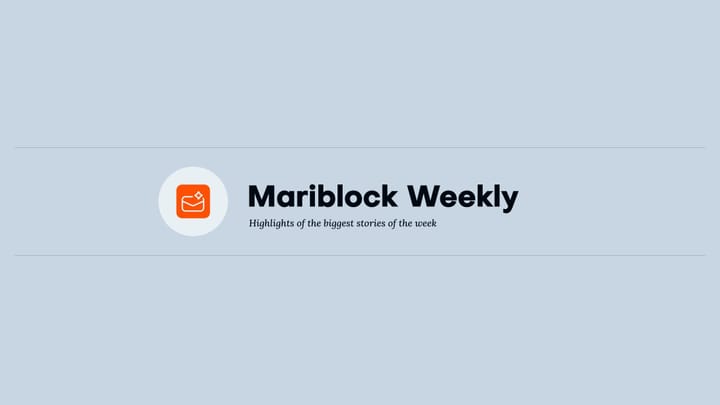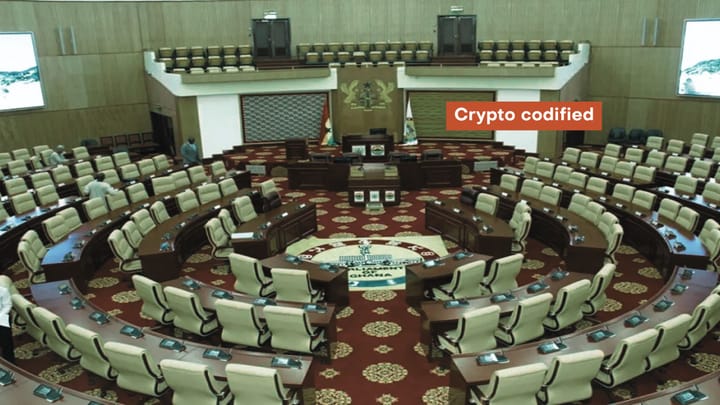Blockchain enters the spaza shop: LovCash, Lisk and a major FMCG want to digitize informal trade
LovCash has deployed its platform on Lisk’s blockchain infrastructure to digitize transactions within the informal FMCG trade in South Africa.

South Africa’s informal supply chain is getting a digital makeover, and blockchain is powering the leap.
Fintech startup LovCash has launched a blockchain-based payments and commerce platform designed to reduce cash dependence and gain greater visibility into fragmented last-mile retail networks.. The company already works with thousands of informal retailers across the country, and now, bigger players are beginning to take notice.
Stay up-to-date with the latest blockchain developments in Africa
Scoop: Major FMCG player in the mix
Mariblock has learned that a major fast-moving consumer goods (FMCG) company — one of South Africa’s largest — has begun working with LovCash.
- The collaboration will see the company integrate the blockchain payment solution across its informal retail distribution network.
- The move signals growing confidence in blockchain-based infrastructure for large-scale, on-the-ground operations.
Fast facts
LovCash offers end-to-end digital payment and commerce tools to informal retailers and wholesalers.
- It currently works with over 3,700 small to medium-sized retailers and has partnerships with nine major wholesalers.
- According to a press release shared with Mariblock, the platform now operates on Lisk, an Ethereum layer 2 (L2) network, focusing on high-growth and cost-sensitive markets.
- Lisk has invested directly in LovCash, offering capital, technical support and ecosystem alignment. This places LovCash among a small group of startups receiving direct ecosystem funding from Lisk.
Why it matters
South Africa’s informal economy accounts for nearly 20% of all jobs but remains largely unbanked and cash-dependent.
- This reliance on physical cash limits traceability, increases the risk of fraud and prevents small retailers from accessing benefits such as discounts, credit, or rewards.
- LovCash aims to fill this infrastructure gap with a digital-first system that is both scalable and easy to adopt for mom-and-pop shops and local supermarkets.
Not so fast?
Still, experts warn that digitising South Africa’s informal economy isn’t just a matter of infrastructure; it’s about trust, behaviour, and access.
- At the 2025 BankservAfrica Payments Conference, panellists noted that cash remains dominant for good reason — it offers everyday convenience, emotional control, and broad acceptance in environments where formal financial systems often fall short.
- The event also flagged a key obstacle: many informal merchants still lack the tools to accept digital payments, often due to the high cost of devices, unreliable connectivity, or limited technical support.
“Cash will still exist in 20, 30, even 50 years,” said Solly Bellingan, acting head of cash services at BankservAfrica. “Our job is to reduce reliance on it — not eliminate it.”
What they’re saying
Costas Constantinou, founder & CEO of LovCash:
“Today, the supply chain is entering the blockchain. We’re replacing cash with a digital-first payment, rewards, and commerce system that enhances trade, benefits, security, and efficiency across the board.”
Dominic Schwenter, COO of Lisk:
“Our partnership with LovCash exemplifies how blockchain can transform industries and drive real impact. By solving real-world inefficiencies in fragmented trade environments, LovCash is demonstrating the utility of blockchain well beyond speculative use cases.”
Zoom out
The LovCash–Lisk partnership reflects a broader trend: the shift from blockchain speculation to infrastructure deployment, particularly in markets where legacy financial rails are weak or exclusionary.



